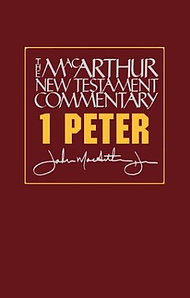
This book, formerly published under the somewhat pompous title - "The Book on Leadership", examines the life of Paul and draws 26 leadership lessons from his example.
I don't know if you are ever tempted to skip the Introduction to a book and jump right in on Chapter One, but if you read this book make sure not to neglect the Introduction. In it, MacArthur defines leadership Biblically, which is quite another thing entirely from Worldly leadership. That isn't to say that those who are faithful leaders in the Biblical sense will not or can not be leaders in the World, however the means, motivations, and power behind that leadership will be drastically different from those who do no follow Christ.
I also appreciated how MacArthur points out in the introduction that all Christians are called to be leaders in some sphere or another. At a basic level all Christians are called to be leaders because all Christians are called by Jesus to be "teaching them to observe all that I have commanded you" (Matt 28:20). To be a Christian is to be a teacher. To be a teacher is to be a leader. This book is not just for pastors, or men, or CEO's...it is for all who seek to be faithful to lead in whatever venue and relationships God has given you.
The first third of the book (and most enjoyable) draws leadership principles from the harrowing account of Paul's journey to Rome as a prisoner and the subsequent shipwreck recorded in the last chapters of Acts. Seeing as how he was in chains, Paul was the least likely person to lead anyone, let alone an entire ship's crew, her captain, and the Roman Centurion who was charged with keeping Paul in chains.
The second third looks at Paul's leadership of the Corinthian church, as recorded in II Corinthians. Here the church he had poured his life out for was falling away from him, necessitating both a firm, direct, yet loving rebuke from the apostle as well as a harsh and fierce offensive against the false teachers that were leading the church astray.
The last third of the book examines Paul's final letter, II Timothy, and discusses how a leader should aim to remain qualified to lead and finish his race with integrity.
This book was definitely challenging to me and I ask for your prayers as I seek by God's grace to live out these principles in any and all spheres of influence God places me in.
the 26 Leadership Principles:
- A leader is trustworthy
- A leader takes the initiative
- A leader uses good judgement
- A leader speaks with authority
- A leader strengthens others
- A leader is optimistic and enthusiastic
- A leader never compromises the absolutes
- A leader focuses on objectives, not obstacles
- A leader empowers by example
- A leader cultivates loyalty
- A leader has empathy for others
- A leader keeps a clear conscience
- A leader is definite and decisive
- A leader knows when to change his mind
- A leader does not abuse his authority
- A leader doesn't abdicate his role in the face of opposition
- A leader is sure of his calling
- A leader knows his own limitations
- A leader is resilient
- A leader is passionate
- A leader is courageous
- A leader is discerning
- A leader is disciplined
- A leader is energetic
- A leader knows how to delegate
- A leader is Christlike



 I found myself referring to this commentary enough during our
I found myself referring to this commentary enough during our 